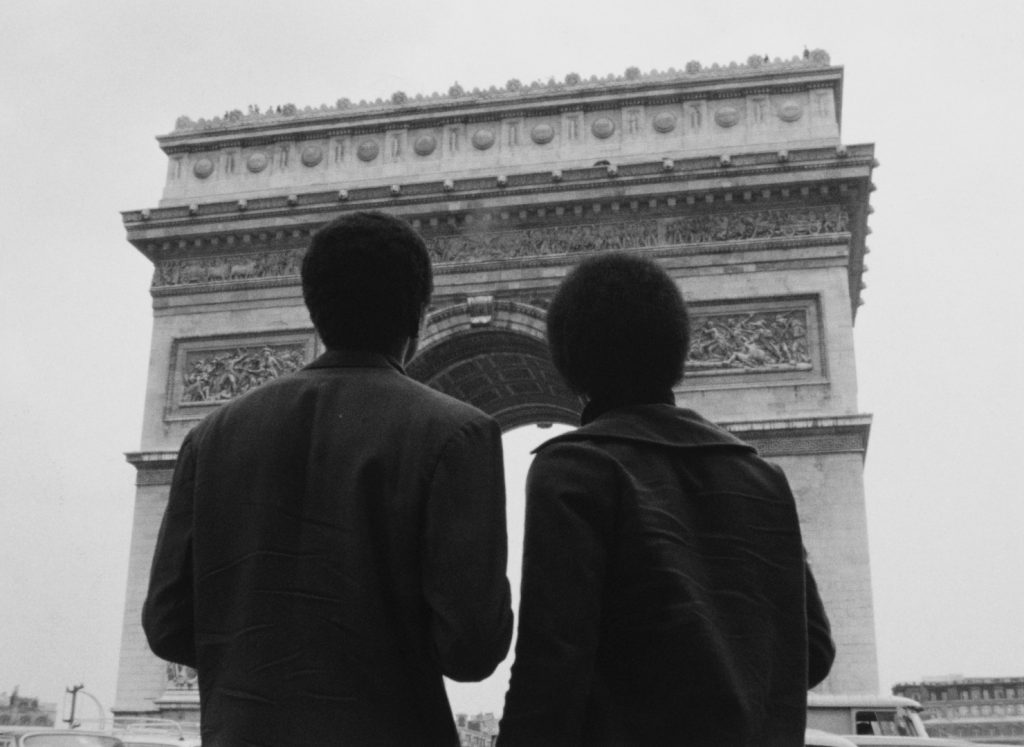A manifesto shot between 1972 and 1975; Sidney Sokhona’s first film tells the story of the struggle of immigrant workers in France.
“It is up to us, as African filmmakers who have a place to carve out for ourselves, to make films politically better than anyone else.” Sidney Sokhona, Cahiers du Cinéma, 1978
Sidney Sokhona was a young Mauritanian living in Paris when he embarked on a film project to document a rent strike at the hostel where he and 300 other immigrants were housed in squalid conditions. Born of necessity but in the most modest circumstances, with a borrowed camera and volunteer crew, the film that premiered five years later at the Cannes Film Festival, had developed into a politically astute, formally dazzling hybrid of documentary and fiction in which Sokhona himself played the role of a young man clandestinely arriving in Paris in the trunk of a car to be confronted with the dead ends of a crippling bureaucracy, inadequate housing conditions and employment opportunities, overt racism, and the well-meaning but domineering efforts of the progressive Left. With Western capitalism, anti-blackness, and migration at its fore, the film’s politics is more than ever relevant to current public debates on inequalities.
Age guidance: 18+
Content advice: Contains scenes of racism
Part of Eden Court’s Cinema Against Fascism programme for Our Freedom, a powerful new season of films exploring what freedom means in age of rising hate, division and authoritarianism and how communities around the world are shaping more just and hopeful futures.
